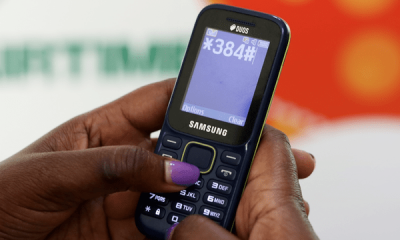Nigeria News
NCC Reveals Dangerous Mobile Apps That Steal User’s Personal Data – [See List]

The Nigerian Communications Commission (NCC) has listed some harmful mobile applications that easily steal users’ data.
The communication agency said the ‘Mobile Apps Group’ has launched some applications containing trojans and adware that could be used to easily steal users’ data and sneak on their privacy.
In an advisory released on Tuesday, the commission said, “The Nigeria Computer Emergency Response Team (ngCERT) has continued to observe and monitor the constant introduction of malicious mobile applications into Google Play Store.
“Mobile apps Group has a history of distributing malware-infected apps through the Google Play store, and the current batch of apps has already been downloaded over a million times.”
It warned Nigerians to stay away from random downloading and sharing of mobile applications.
It revealed some of the malicious apps including “Bluetooth Auto Connect; Bluetooth App Sender; Driver: Bluetooth, Wi-Fi, USB; and Mobile transfer: smart switch.”
It further disclosed that the malicious activities of these apps were high in probability and potential to do damage.
“The apps will delay the display of ads for up to three days after installation to avoid detection.
“However, once this period has passed, the user is bombarded with advertisements and is directed to malicious phishing websites in the Chrome browser. While the device is idle, the malicious app can open Chrome tabs in the background. Some of the sites it opens may appear to be harmless, but they are pay-per-click pages that generate revenue for the developers when clicked on,” the NCC-CSIRT disclosed.
It further explained that the consequences of installing the malicious apps included the user being bombarded with advertisements, theft of sensitive user data, clicking on the ads resulting in the stealth download or installation of additional malware, as well as the user privacy and data being jeopardised.












